Case Study: Legal Analysis of a Renovation Contract Dispute
VerifiedAdded on 2022/10/13
|5
|912
|11
Case Study
AI Summary
This case study analyzes a legal dispute arising from a renovation contract. Peter and Mary sought quotes for timber flooring, leading to an agreement with James. The analysis focuses on whether Peter and Mary have legal rights against James due to issues with workmanship and potential negligence. The assignment examines the application of contract law principles, including offer and acceptance, express terms, and defenses like act of God. The case also considers potential claims of negligence and defamation. The student uses the IRAC method (Issue, Rule, Application, Conclusion) to analyze the scenario, referencing relevant legal precedents. The conclusion determines the legal standing of Peter and Mary to seek remedies or damages, providing a comprehensive overview of the legal issues involved in the renovation contract dispute.
1 out of 5
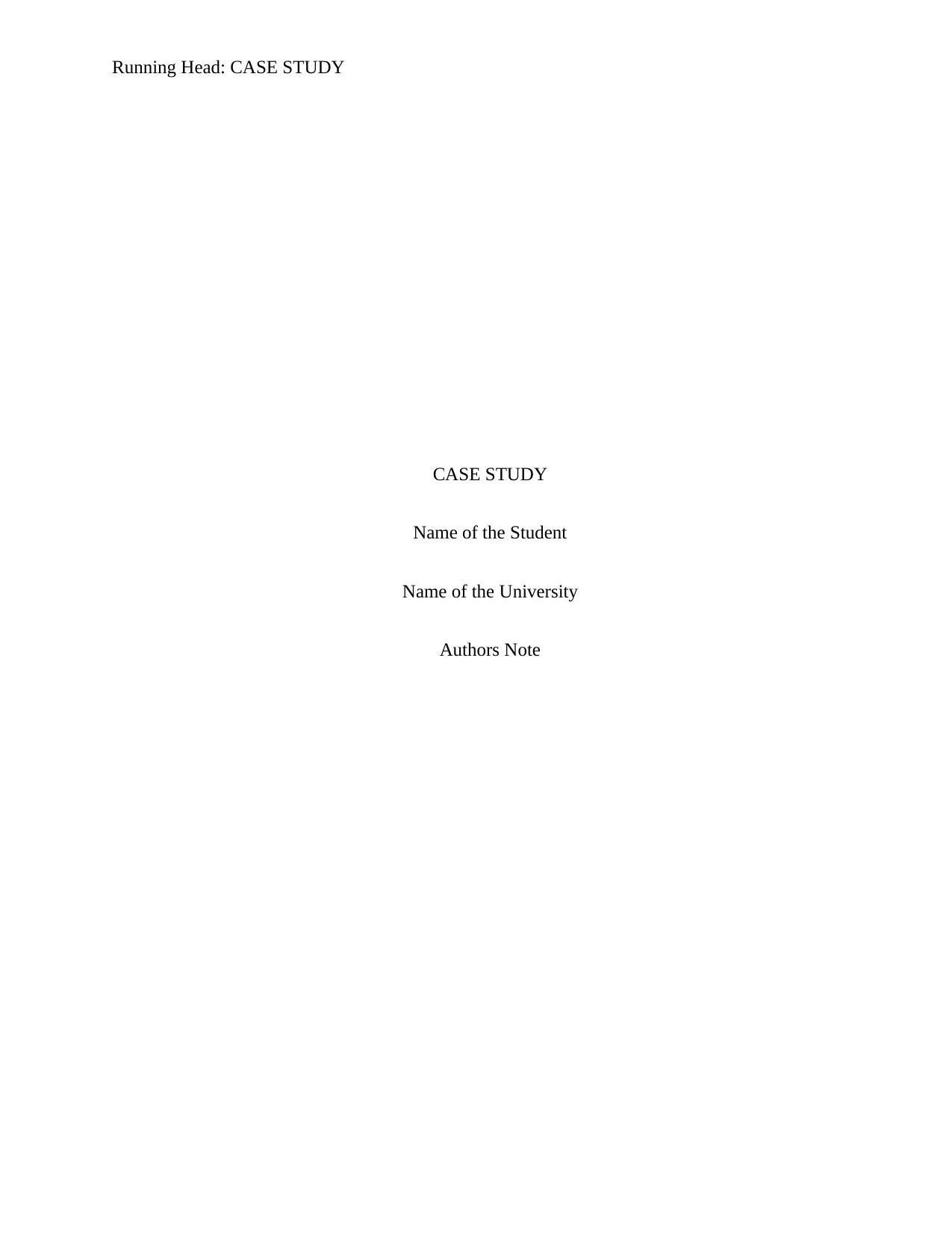
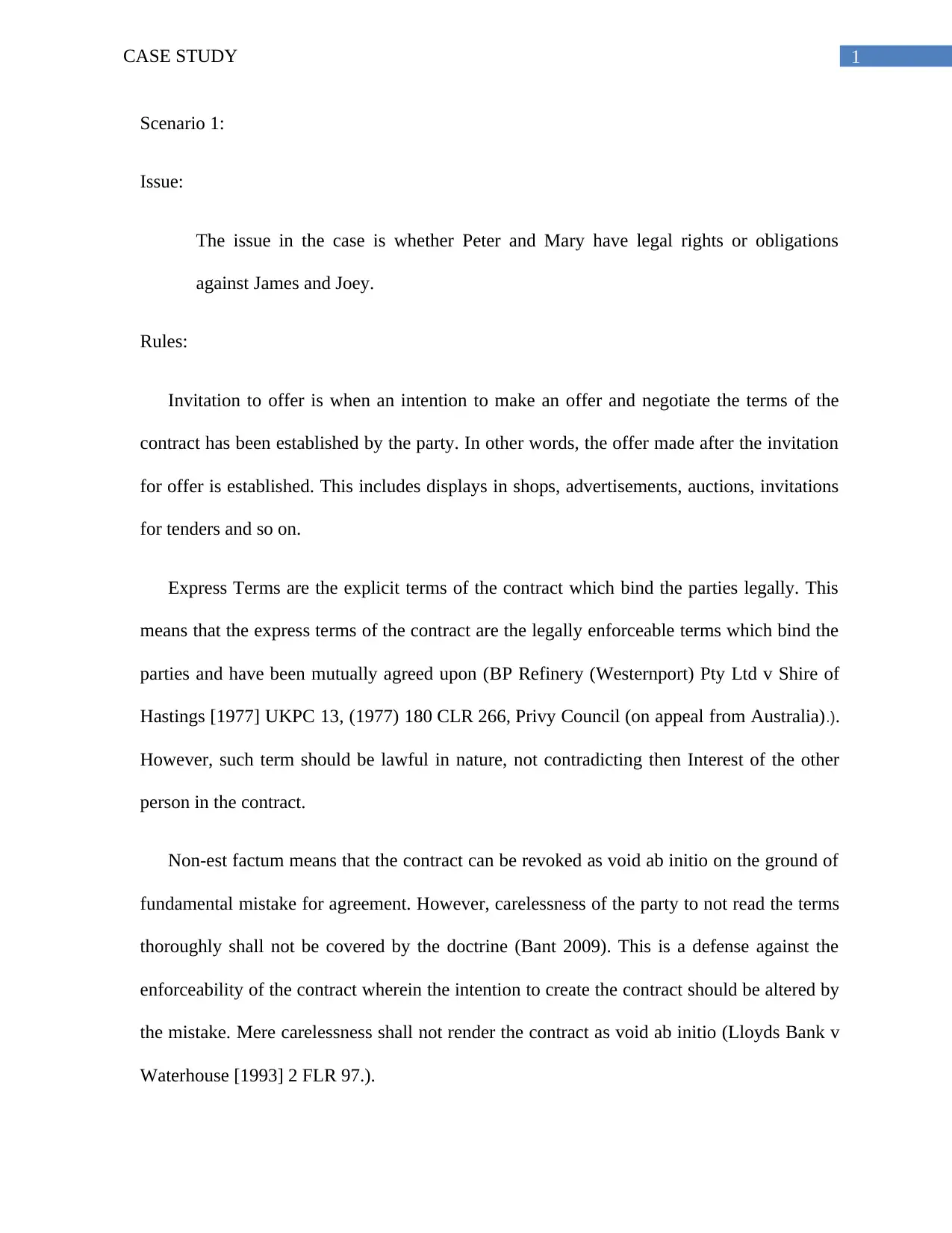
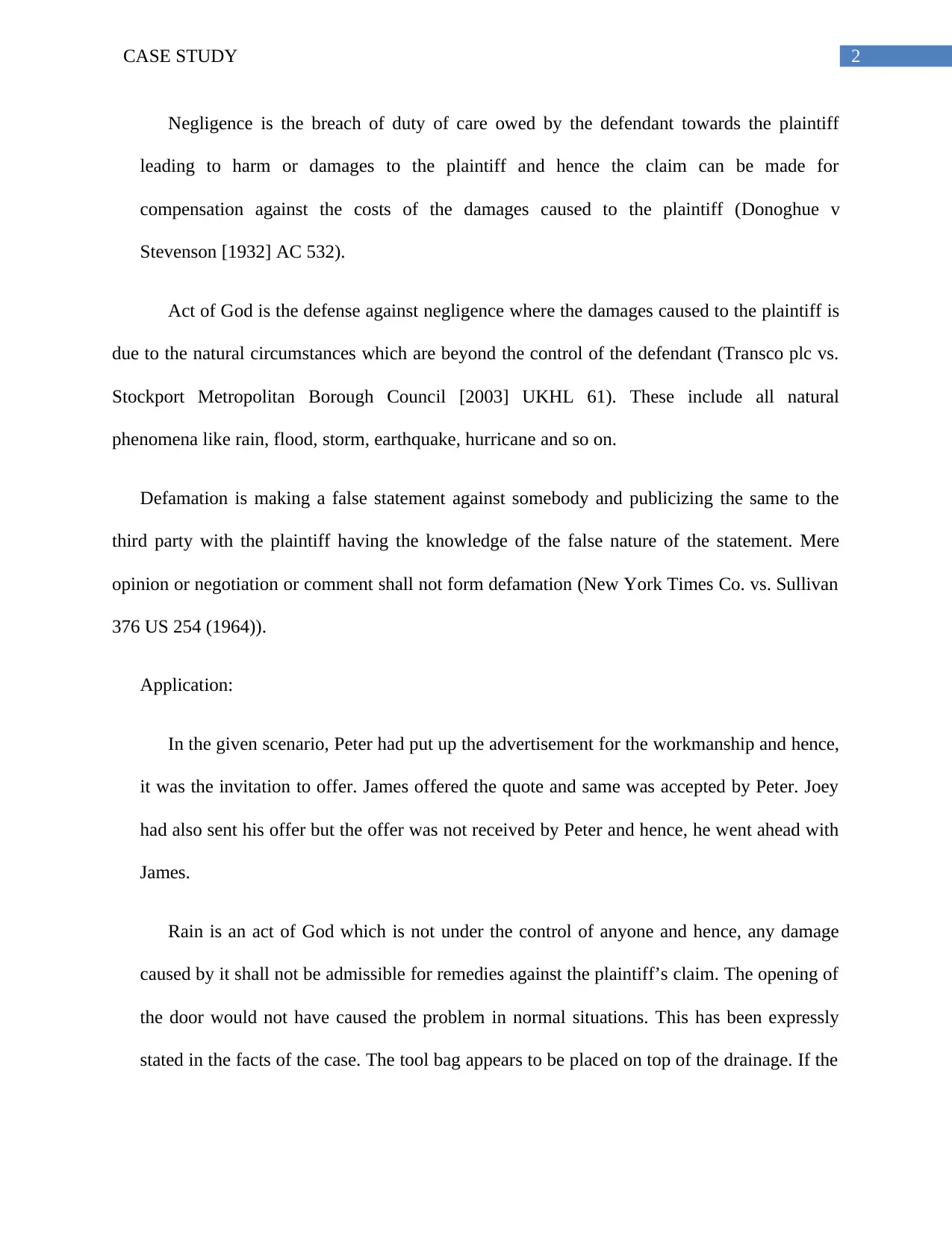

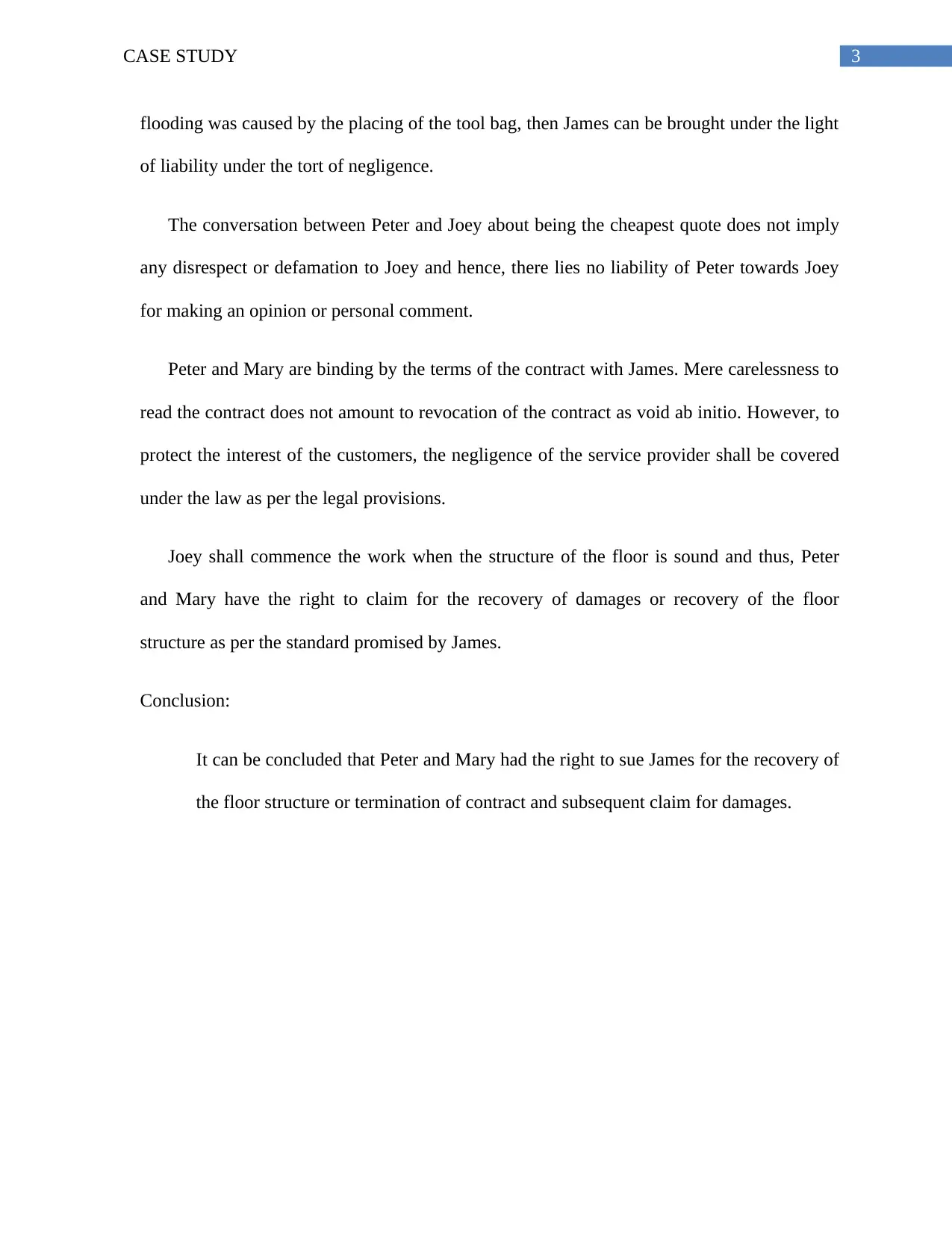
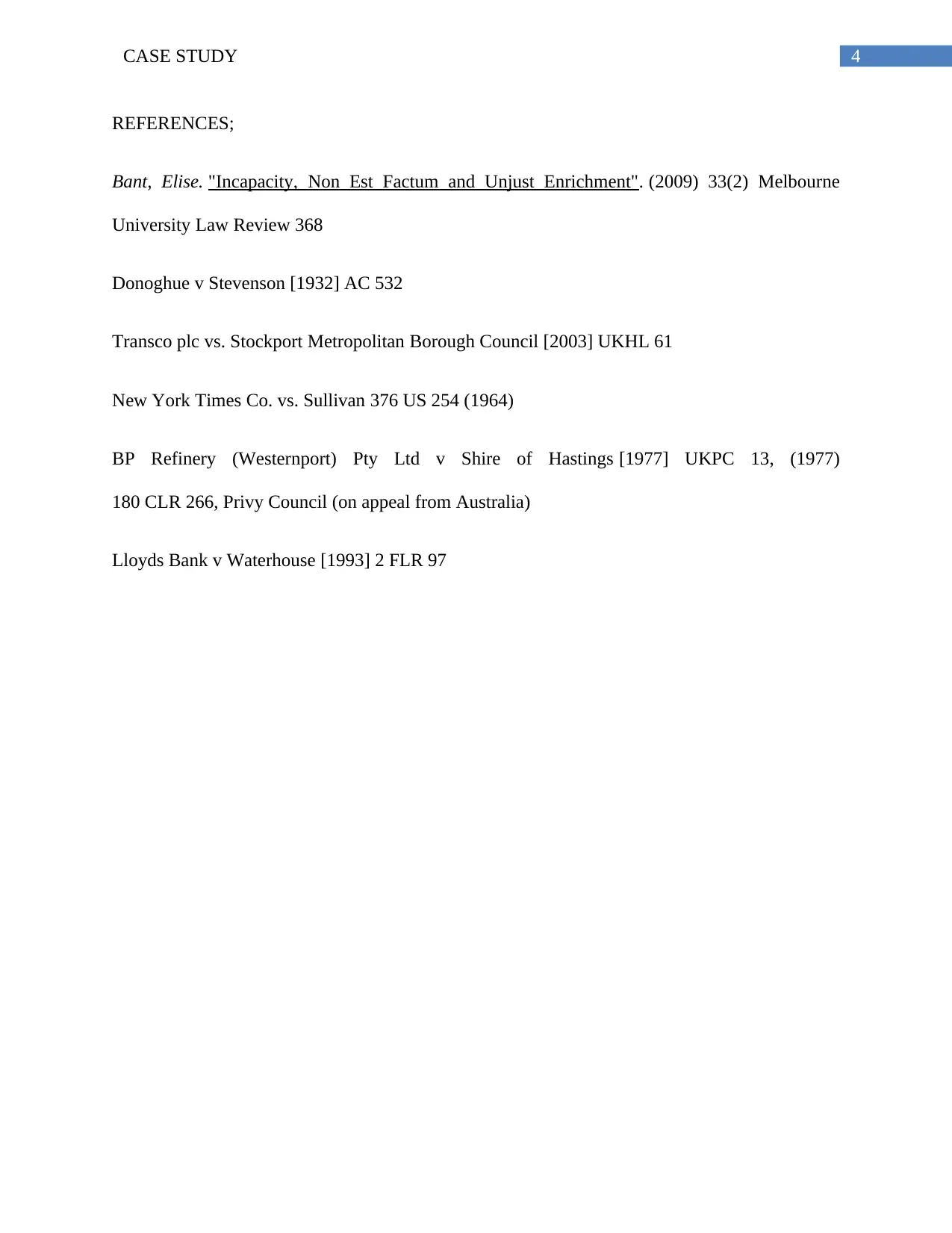



![[object Object]](/_next/static/media/star-bottom.7253800d.svg)